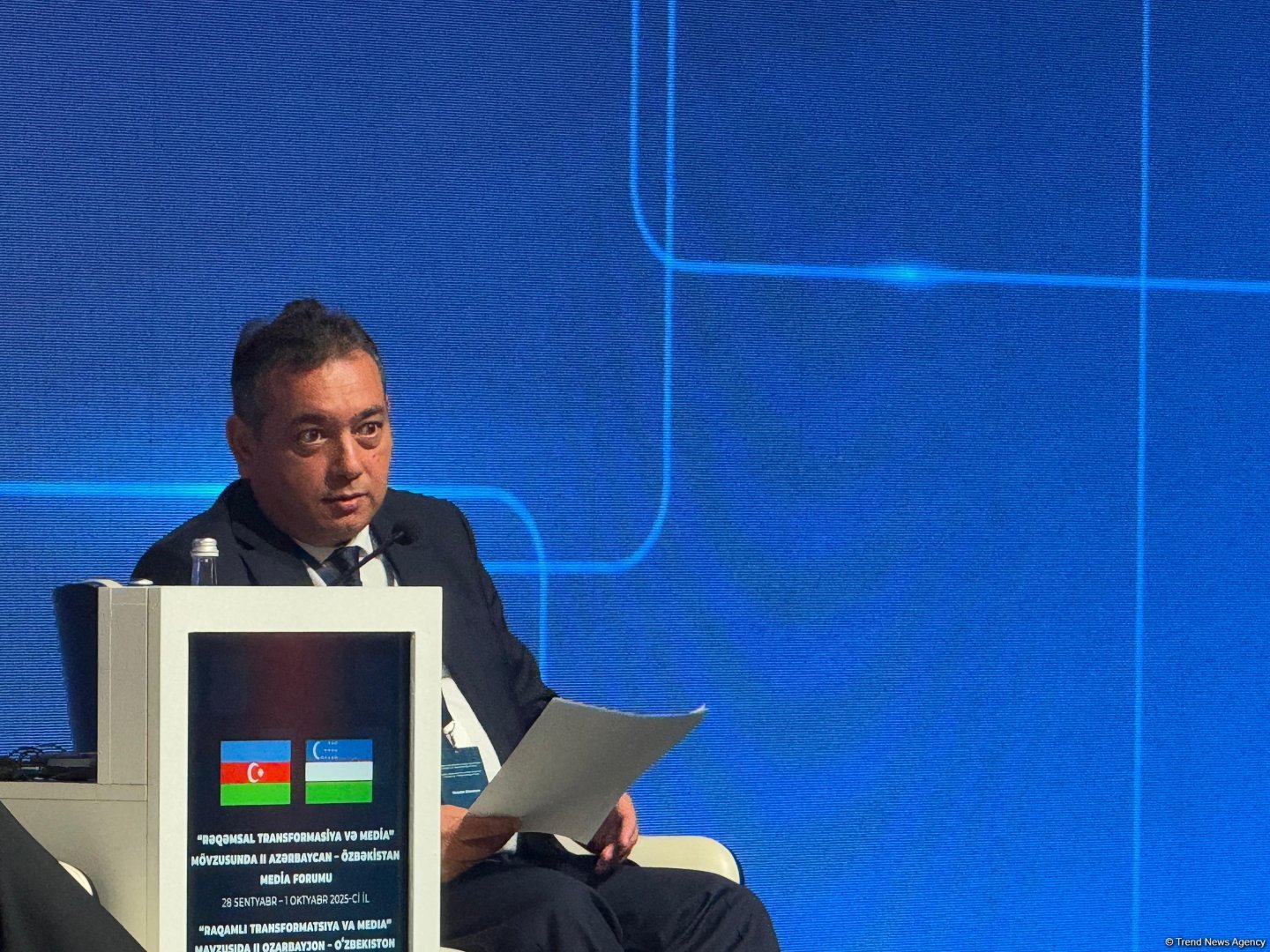BAKU, Azerbaijan, September 30. The reliability of information today is largely determined by how effectively countries and media structures cooperate, the deputy director of the Uzbekistan 24 Creative Association and chief producer of the Uzbekistan 24 TV and radio channel, Haydar Khasanov said, Trend reports.
He made the remark at the 2nd Azerbaijan-Uzbekistan Media Forum on “Digital Transformation and Media.”
“Azerbaijan and Uzbekistan are already strengthening media ties to ensure objective coverage of political events and increase audience trust in the news,” he noted.
However, according to him, there are a number of serious challenges. Hasanov cited statistics from the pandemic: according to the National Library of Medicine, in 2020, about a million pieces of fake content related to COVID-19 were recorded. In a large sample of social media posts, such messages received a total of more than 2.35 million reposts over the year.
“These figures clearly demonstrate the scale of the ‘infodemic’. In today's environment, clear ethical guidelines for news services and editorial offices, as well as uniform rules of the game in the media environment, are particularly important,” he noted.
“An effective model for the future must include two-way fact-checking, agreed wording, the exchange of source materials, and uniform editorial standards. This approach reduces the risk of distortion and creates a coherent picture for audiences in both countries,” Khasanov added
In conclusion, he noted: "Our profession wins not through loudness, but through transparency. It is fundamentally important for us to maintain high standards: to say exactly what we know, to promptly clarify data when it changes, and to always cite our sources of information. Only in this way, even in the age of clip thinking and artificial intelligence, will journalists retain their main value—trust."







